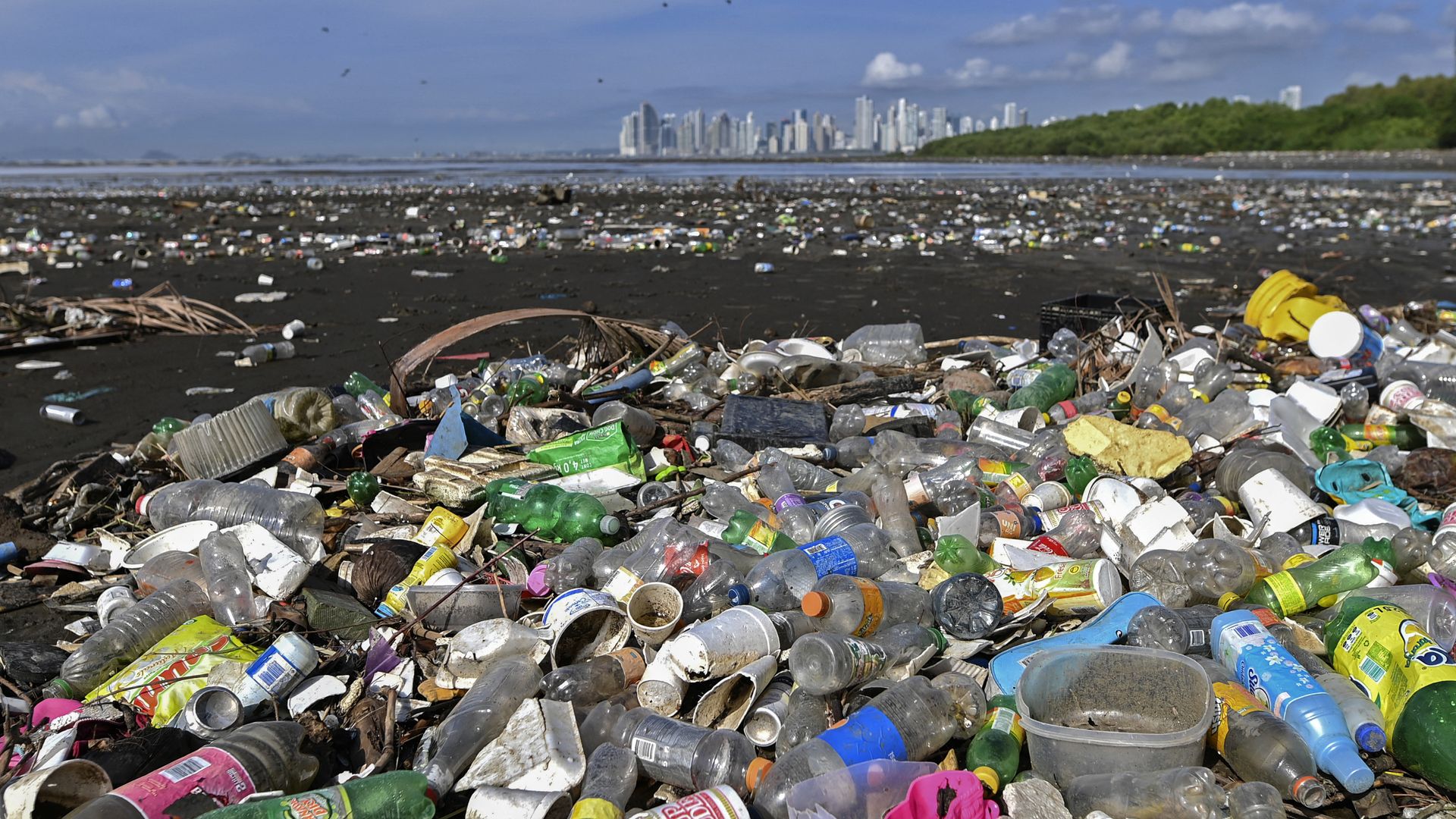Jun 10, 2021 - Energy & Climate
Study: Take-out food, drink litter make up vast majority of plastics in oceans
Add Axios as your preferred source to
see more of our stories on Google.

The beach of Costa del Este in Panama City. Photo: Luis Acosta/AFP via Getty Images
